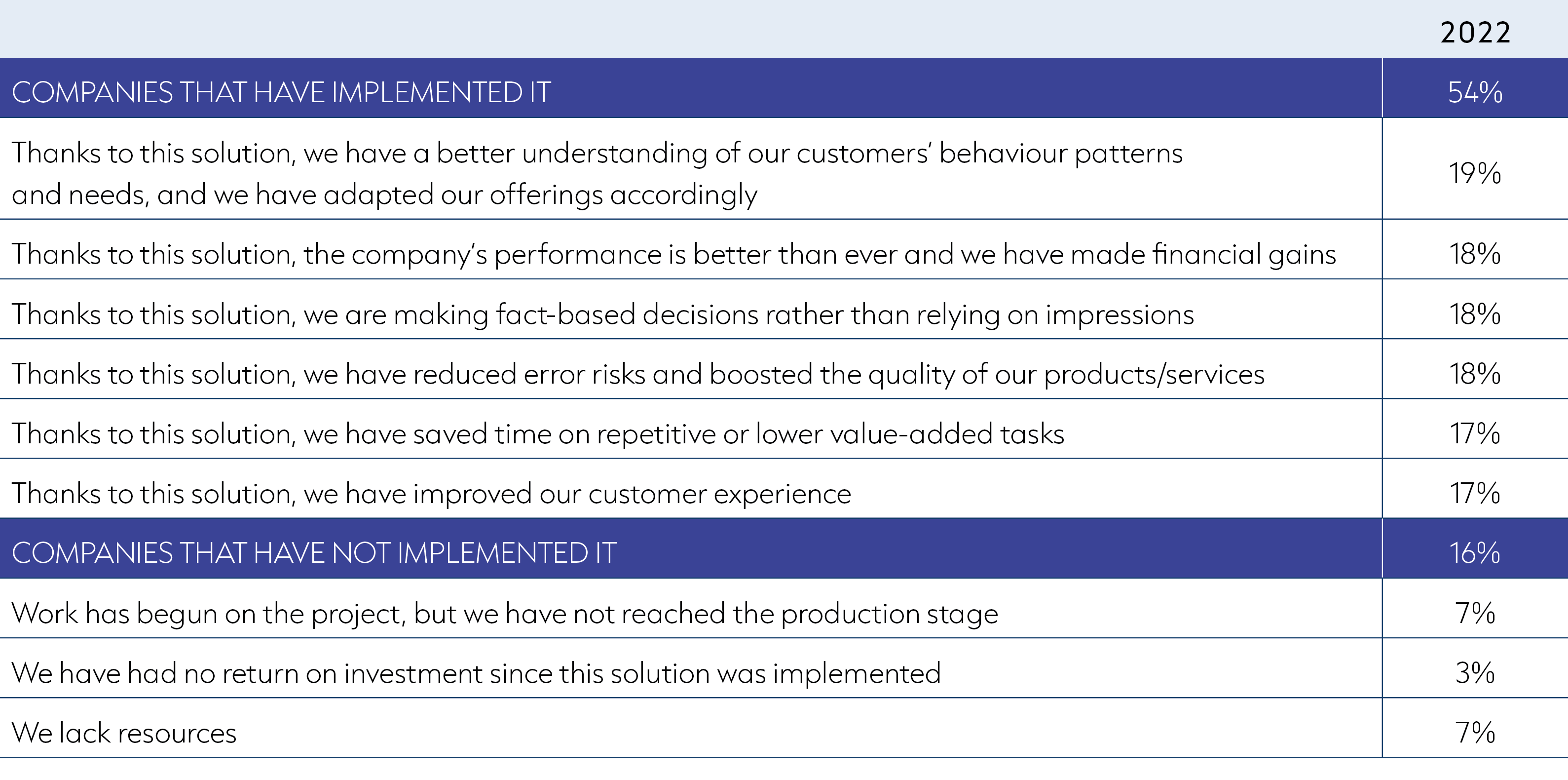This seventh edition of NOVIPRO GROUP/Leger’s IT Trends Report is the first to be published in the post-pandemic era in Canada. Although the public health crisis may be behind us, businesses’ digital transformation appears to be lagging. In order of importance, inflation, remote work, labour shortage, the threat of a recession, environmental disasters and internation tensions have all had a negative impact on corporate investments in technology.
Download the full study

Thanks to this edition of IT Trends Report, it has been confirmed that economic pressures and the social climate have done little to improve companies’ perceptions of IT, even though the pandemic and increased risks of perceived cyberattacks are behind us.
The study reveals that trust in the IT team in terms of security is down this year (88%) compared to the last survey of 2021 (92%).
Still, trust in IT is higher among companies that perceive themselves to be better equipped, particularly those planning to invest in security solutions (96%), that have state‑of‑the-art IT infrastructure in place (94%), or that conducted cybersecurity training over the past year (93%).
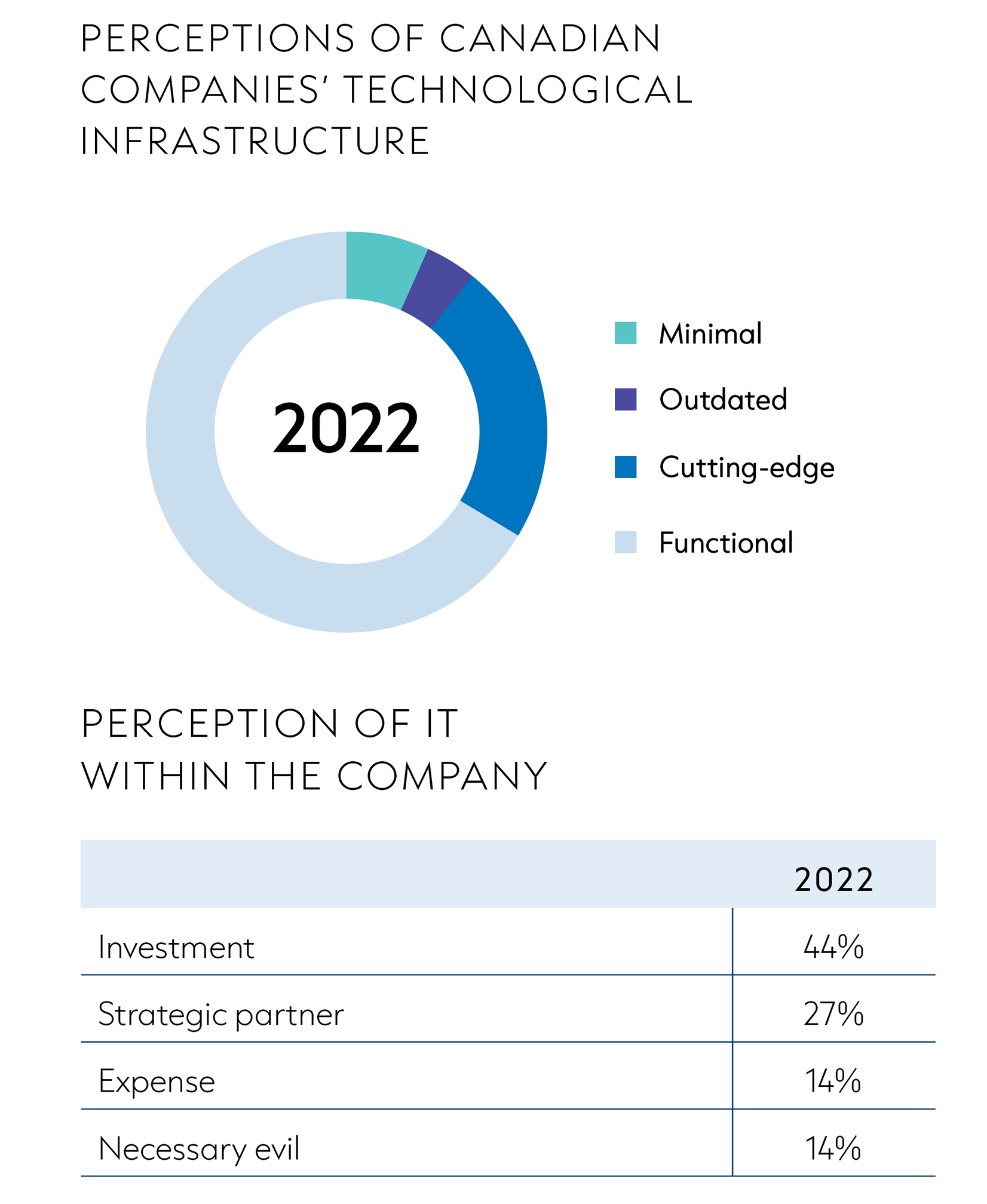

Planned investments in technnology are at their lowest point in the last six years.
Investment plans in technology have been greatly influenced by inflation.
This downward trend has been observed since the pandemic began and continued this past year, as shown in the following table. Three-quarters of respondents (76%) are planning to roll out tech investments, down from 92% prior to the pandemic in 2019.
Download the full study

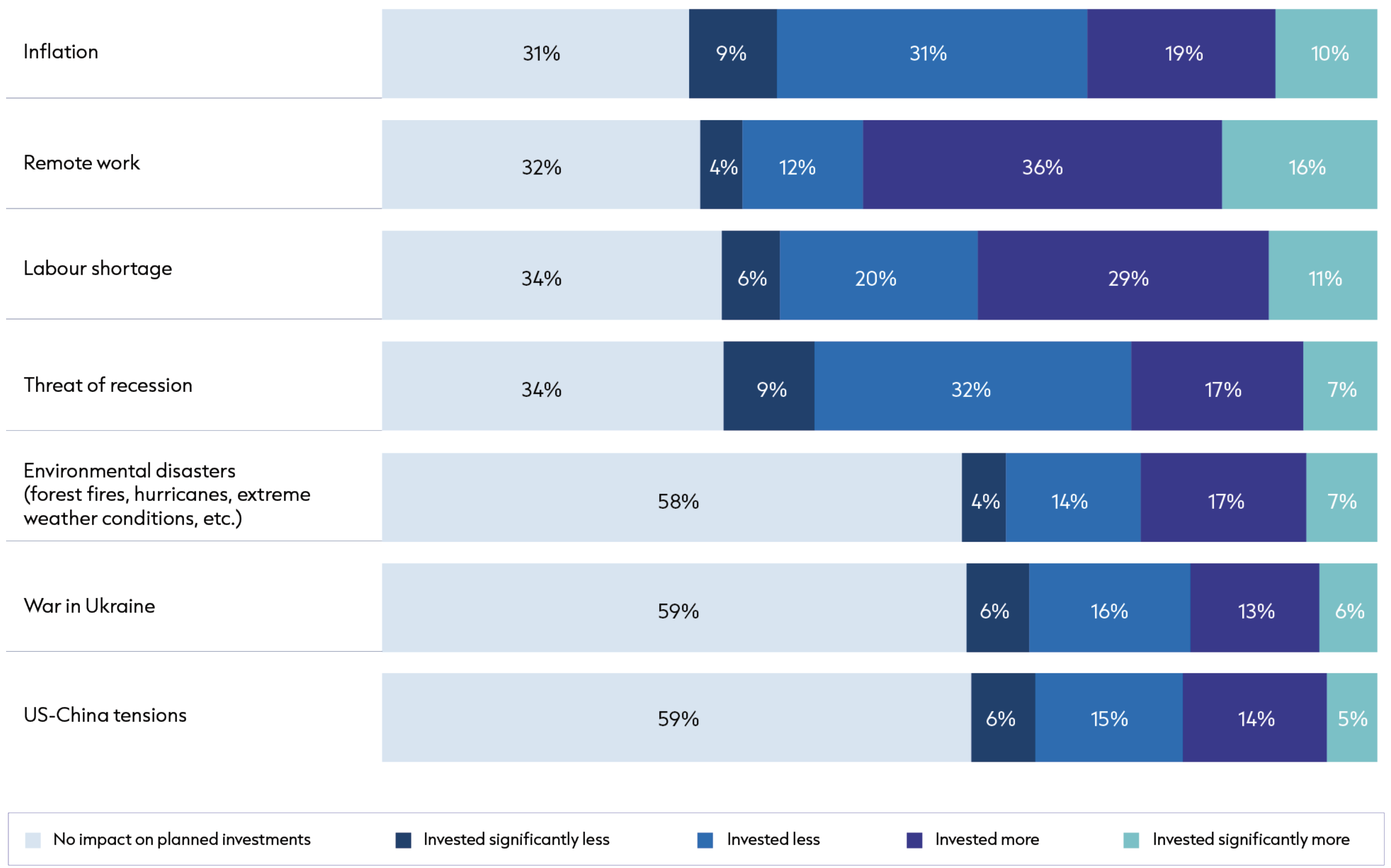

As expected, the labour shortage continues to be a source of concern for HR departments across Canada. Respondents’ difficulties in attracting qualified resources (37%) and retaining key talent (37%) remain the biggest HR challenges, according to respondents. More than one-third agreed that the current socio-economic climate has made it harder to attract qualified resources (42%) and to retain key talent (38%), while also exacerbating internal or external pay inequities (35%).
LEARN MORE
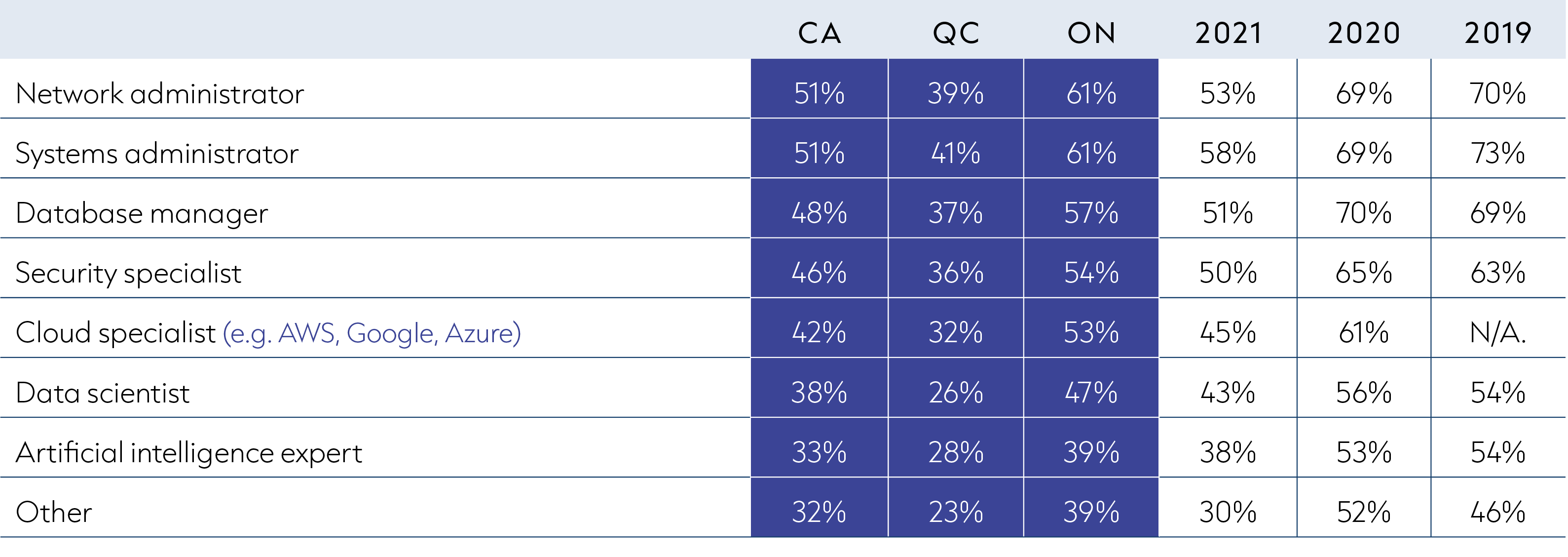
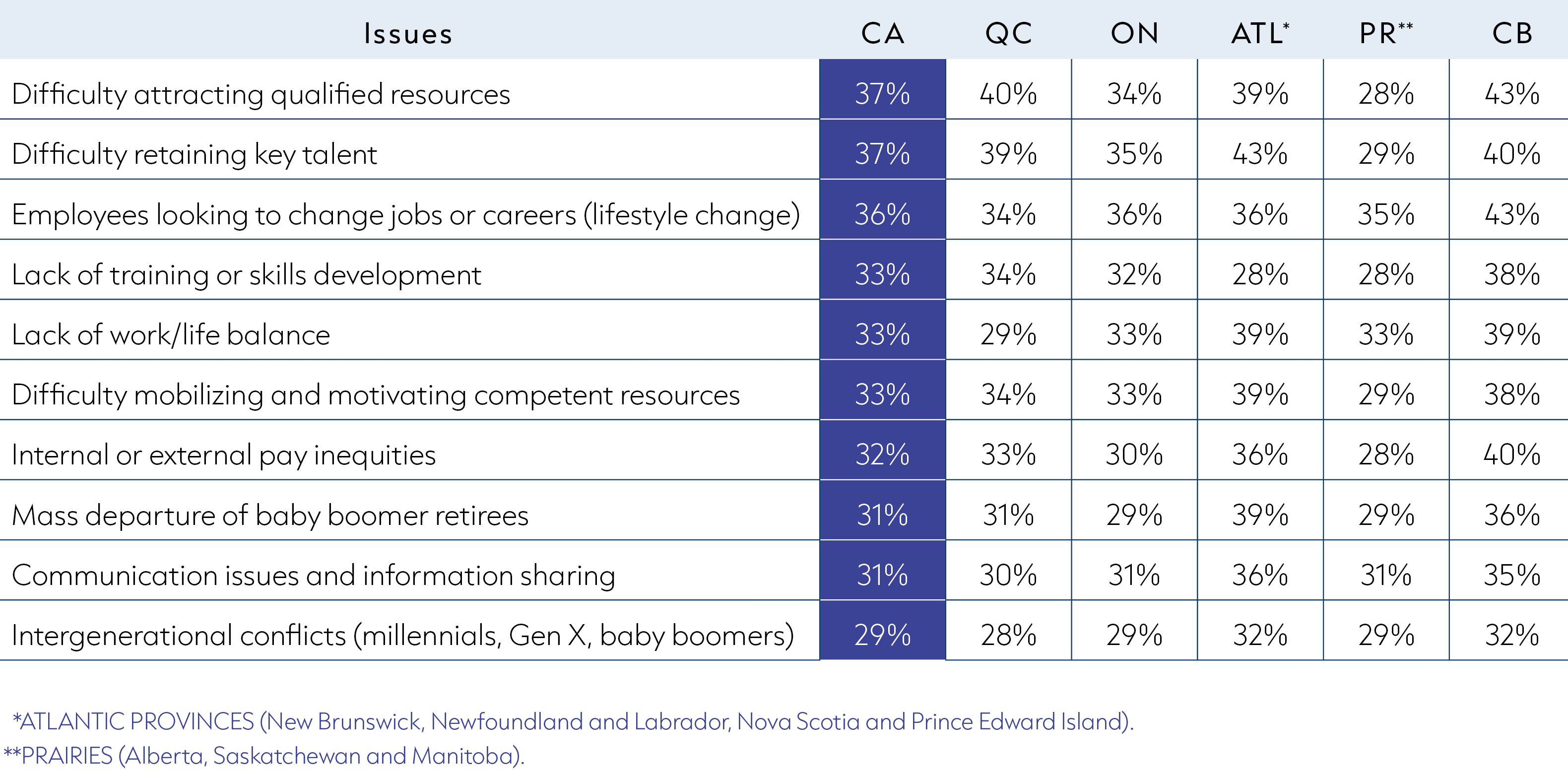

Has cybersecurity been adapted to the new post-pandemic reality?
The pandemic and the new work-from-home reality have made companies wary of data theft. Based on our most recent survey, the majority of respondents still do not feel adequately protected from hackers.
LEARN MORE
Cyberthreats continue to evolve, so it is essential for companies to continuously update their virtual security parameters. Most companies (75%) have reviewed their security practices, down slightly from last year (76%). This demonstrates the major impacts of the socio-economic climate, which are still affecting companies’ decision-making process this year. Companies indicated that the most pressing issues influencing their security practices are remote work (65%) and the labour shortage (56%). IT decision-makers mentioned remote work more often (71%), along with US-China tensions (43%) and the war in Ukraine (41%).

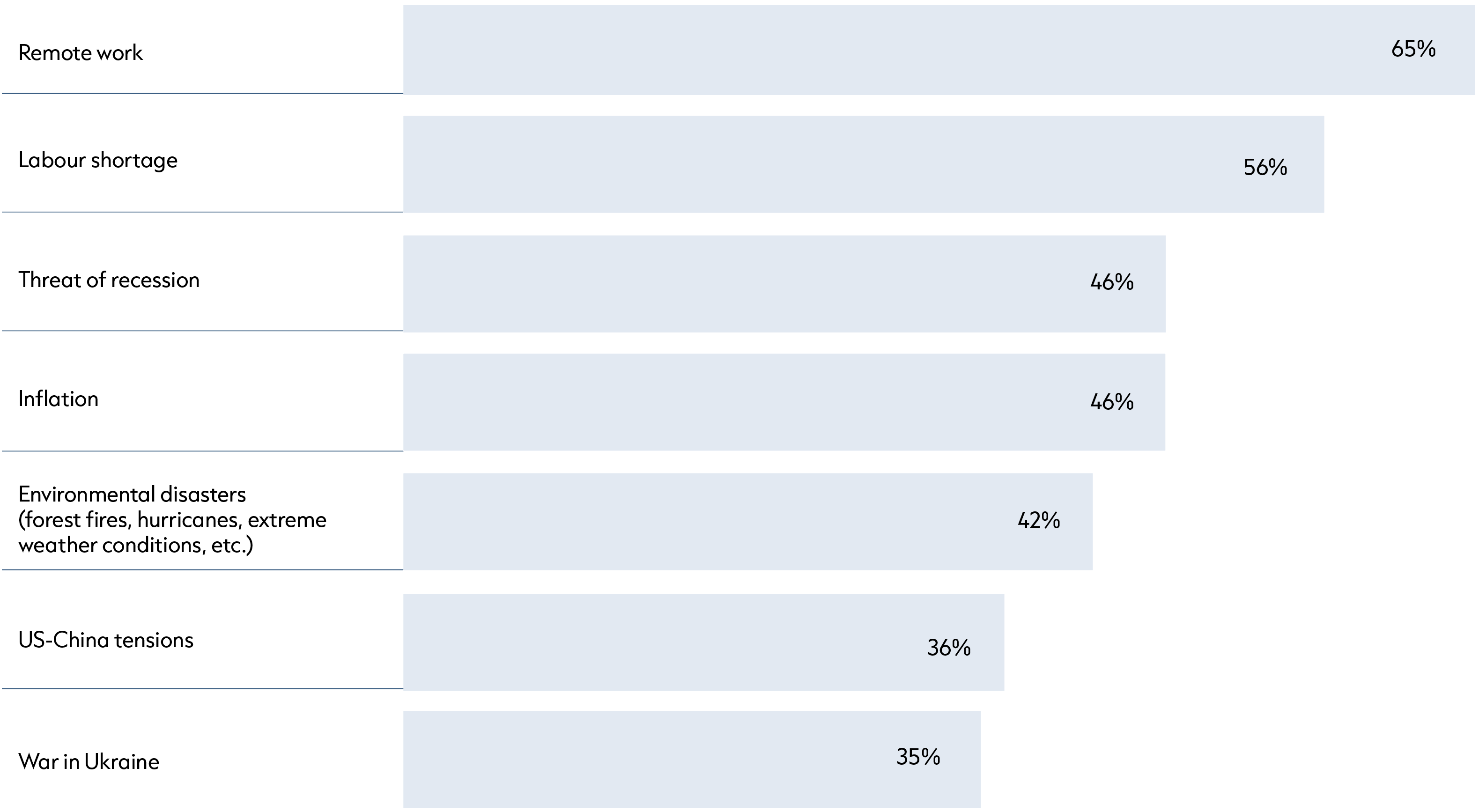
Among the 22% of Canadian companies claiming to have already been the victim of a cyberthreat - a percentage similar to the previous two years - more than half of them (57%) paid the requested ransom. For one in four companies the estimated cost of cyberthreats (including the amount of the ransom itself, the cost of additional resources and the financial losses incurred) was more that $500,000.
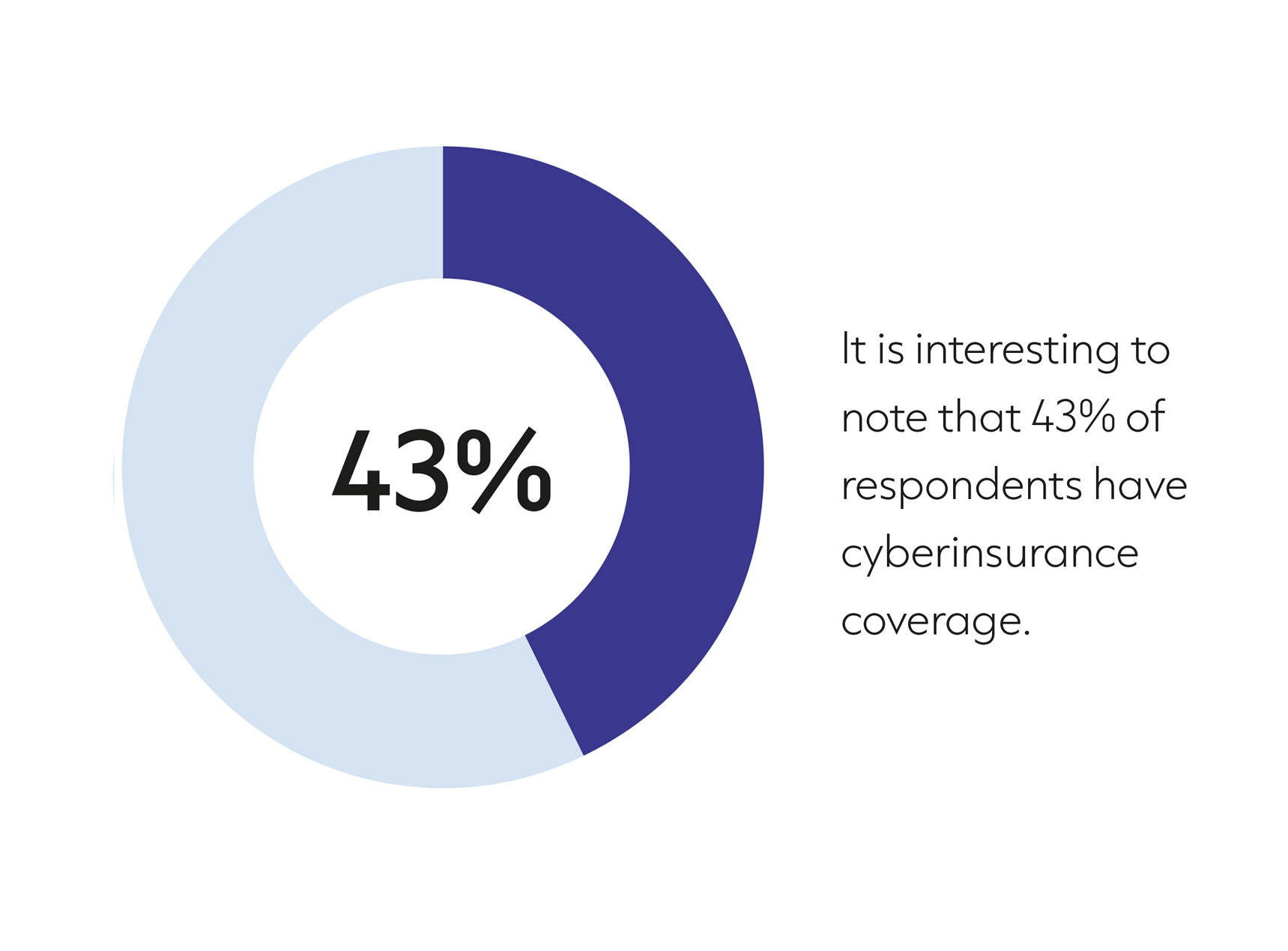
Only half of organizations feel very well protected against various types of cyberattacks. External sources (38%) have increased significantly since last year and are now the main threat to companies. Internal malicious actors remained stable at 30%..

To ensure the cybersecurity of information for employees working away from the office, over half of companies (58%) require them to use a secure virtual private network (VPN). Almost one‑third of respondents (32%) have implemented federated identity management software. A similar percentage (33%) of respondents require that their employees obtain authorization prior to downloading applications or programs onto their work tools.
Over half of companies (59%) have offered cybersecurity training to their employees in the past year. Not surprisingly, the financial industry (78%) provided significantly more employee training than other sectors, likely due to higher reputational risks and more severe consequences. This training is usually mandatory for all employees (68%) and is provided shortly after hiring (41%), as well as at pre‑determined periods once a year (35%) or several times a year (23%).
LEARN MORE


READ THE STUDY
In the post-pandemic era, companies are timid in making tech investments. The labour shortage and the effects of inflation may appear to be barriers to growth for many companies, but high‑tech solutions to address these issues may serve as a springboard to accelerate growth over the long term.
![]()
LEARN MORE
Advanced data analytics and AI have been dominating the headlines in recent months, thanks in part to ChatGPT and how it could revolutionize the world of work. Three-quarters of respondents expect this solution to transform their company or sector. Still, more than one in three respondents (38%) believe that this technology will transform their company within two years.
To a significantly greater extent, the financial services (48%), manufacturing (48%), consumer products (food/beverages, retail, logistics and automobiles) (40%), education and social/personal services (39%) and technology, media and telecommunication (38%) sectors all believe that advanced data analytics and AI have already transformed or will transform their industries.

